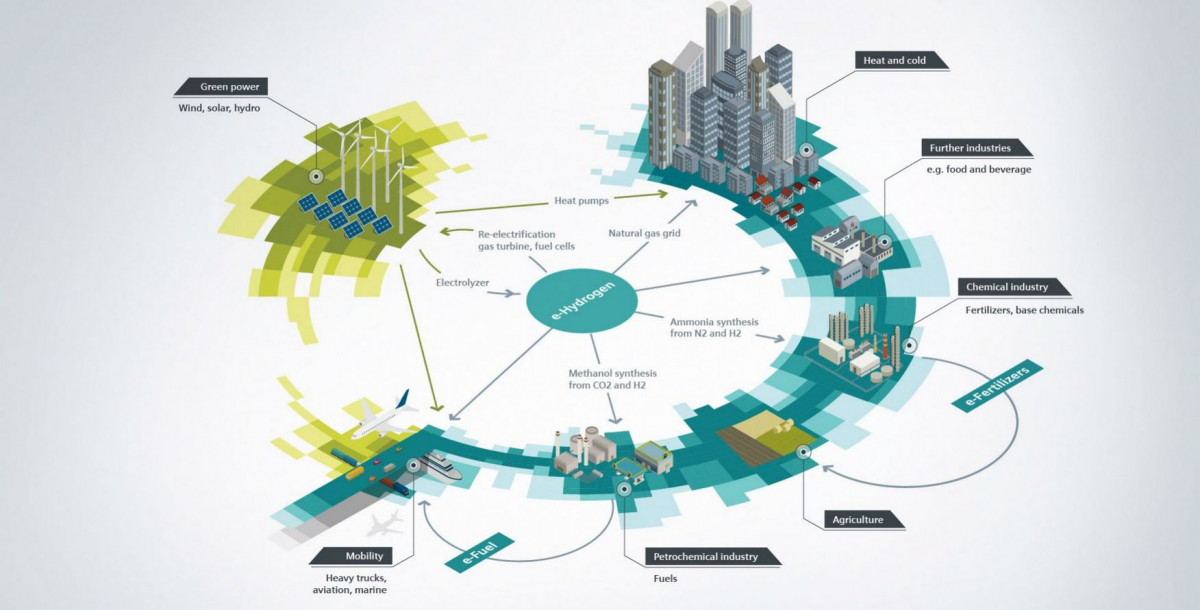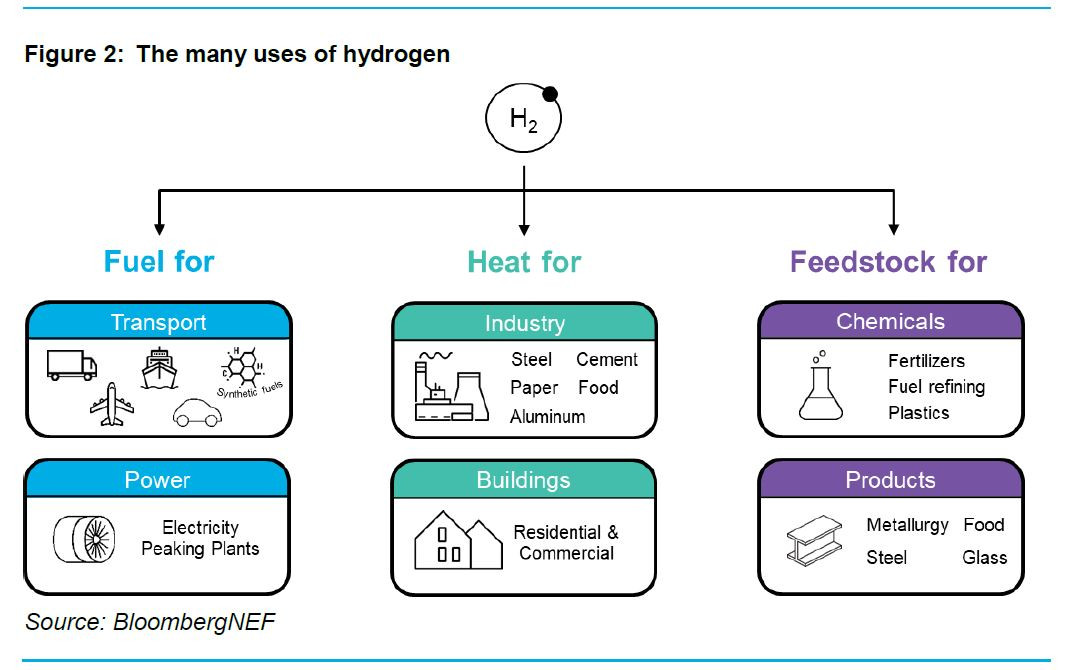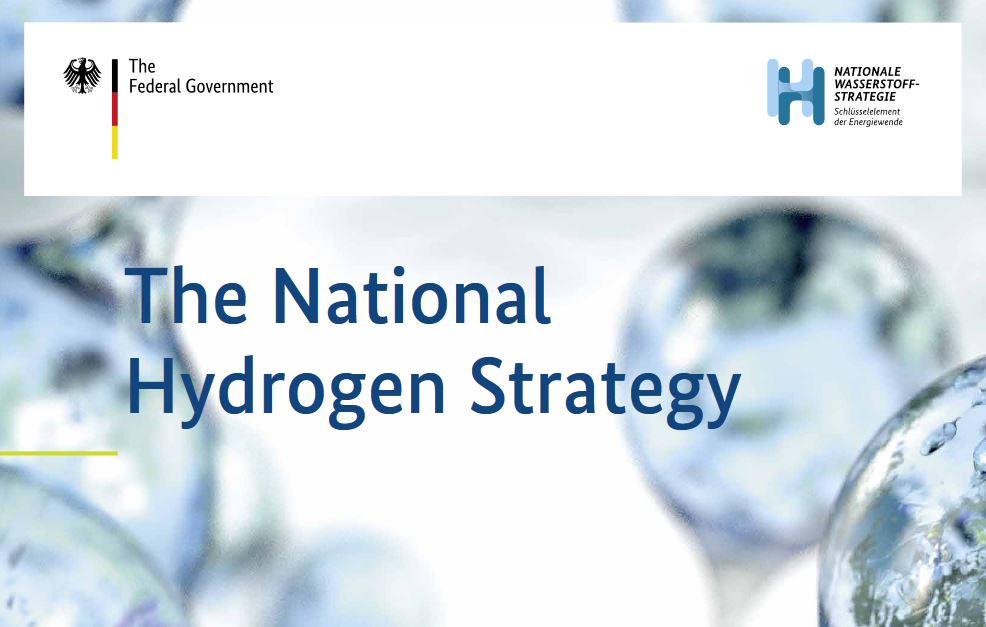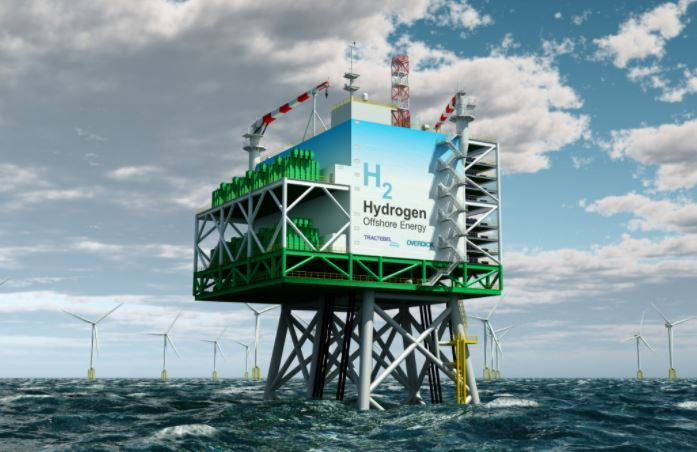Contents
- For more information on industry decarbonisation in general, see the dossier "Germany gets serious about decarbonising its prized heavy industry"
- Our search function shows the latest hydrogen news – see here.
Analysis: Europe vies with China for clean hydrogen superpower status

The rivalry between Europe and China in emission-free hydrogen technologies could become one of the defining business stories in the global effort to stop climate change. Scarred by its painful experience in solar PV manufacturing, which was developed in Europe at high cost only to later move to China, Europe is not taking any chances with hydrogen. In a bid to outcompete China and fulfil its ambition to become climate-neutral, Europe has launched a massive green hydrogen push to decarbonise industry and aviation and secure promising export opportunities. Green hydrogen is viewed by many as key to reaching "net-zero" emission targets, but a global rollout of the technology won’t be possible without steep price decreases. This could make competition between the EU and China crucial to global decarbonisation efforts. Read the analysis here.
Report: German hydrogen strategy aims for global leadership in energy transition

Germany places a large bet on hydrogen produced using renewable energy in its highly anticipated national hydrogen strategy that serves to underpin the country's ambitions to become a global leader in the technology. The strategy puts a clear focus on this "green" variety at the expense of support for using controversial carbon capture and storage (CCS) to produce hydrogen from natural gas. While environmental activists mostly welcomed this approach, industry was critical. But many experts still agreed the strategy opened a new chapter in Germany's energy transition. Read the report here.
Factsheet: Germany's National Hydrogen Strategy

In the fight against climate change, hydrogen made with renewable electricity is increasingly seen as a silver bullet for sectors with particularly stubborn emissions, such as heavy industry and aviation. Germany has set out to become a global leader in the associated hydrogen technologies, and the governmnet has penned a National Hydrogen Strategy to fulfil these ambitions. This factsheet summarises the strategy, which was approved by government on Wednesday 10 June. Read it here.
Interview: Europe must take ambitious lead in green hydrogen – German govt advisor

Europe's economy is well placed to benefit from the fledgling global hydrogen economy and should decisively follow through with its hydrogen strategies, says Veronika Grimm, a member of Germany's council of economic experts, one of the country's most important advisory committees. "We are in a very strong position in Germany and Europe when it comes to hydrogen and synthetic fuels, and we should keep that advantage," said Grimm, who is also a member of Germany's freshly launched hydrogen council dedicated to supervising the implementation of the country's recent hydrogen strategy. Grimm talks about her expectations for a global hydrogen economy, its implications for industries across the globe, and why she thinks the coronavirus crisis might speed up the transition rather than slowing it. Read the interview here.
Interview: EU plans 'completely change outlook' for global hydrogen economy - BloombergNEF

The EU's and Germany's plans to push the use of green hydrogen to decarbonise the economy are likely to trigger a competitive race with China that will be crucial for a global breakthrough of the technology, says Kobad Bhavnagri, Global Head of Industry and Building Decarbonization at research service BloombergNEF (BNEF). Europe's recent commitments "completely change the outlook" for a sharp reduction in costs that will allow scaling up production and use of renewable hydrogen, Bhavnagri told Clean Energy Wire. In turn, this could allow more countries to commit to a net-zero emissions target in the fight against climate change. "Europe's and Germany's leadership in hydrogen is exactly what was needed to kickstart the move," said Bhavnagri, lead author of BNEF's landmark 'Hydrogen Economy Outlook' report published earlier this year. Read the interview here.
Report: EU wants to become market leader in hydrogen technologies, create 1 million jobs

The European Union wants to establish itself as the world leader in hydrogen technologies and will focus on ramping up electrolyser capacities in the next four years. According to the European Commission's hydrogen strategy, the bloc aims to create a multi billion euro market by 2050 that will support up to 1 million jobs and will help to reach greenhouse gas reduction targets in sectors that are otherwise hard to decarbonise. German heavy industry welcomed the EU's approach, but environmentalists and the renewable industry criticised that the strategy included hydrogen made on the basis of fossil fuels. Read the report here.
